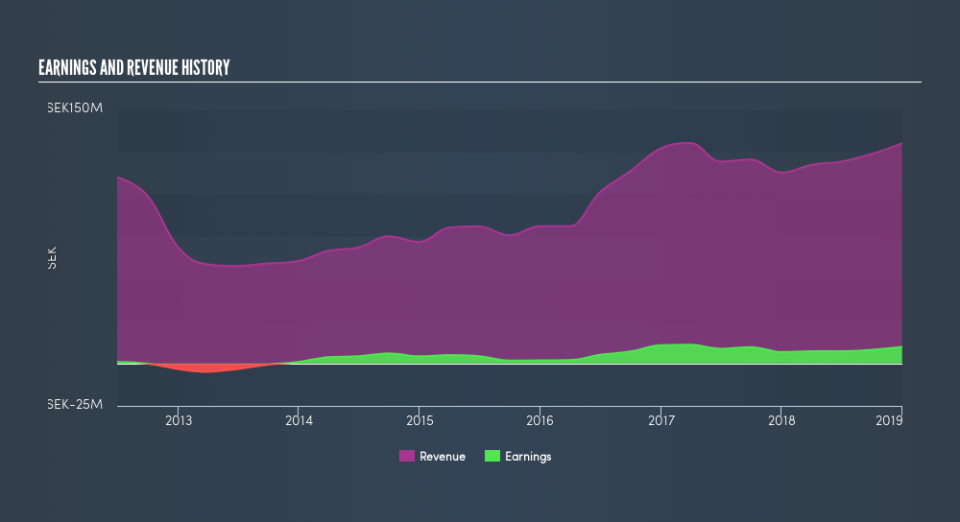Does The JLT Mobile Computers AB (publ) (STO:JLT) Share Price Fall With The Market?

Anyone researching JLT Mobile Computers AB (publ) (STO:JLT) might want to consider the historical volatility of the share price. Modern finance theory considers volatility to be a measure of risk, and there are two main types of price volatility. The first category is company specific volatility. This can be dealt with by limiting your exposure to any particular stock. The second sort is caused by the natural volatility of markets, overall. For example, certain macroeconomic events will impact (virtually) all stocks on the market.
Some stocks see their prices move in concert with the market. Others tend towards stronger, gentler or unrelated price movements. Some investors use beta as a measure of how much a certain stock is impacted by market risk (volatility). While we should keep in mind that Warren Buffett has cautioned that 'Volatility is far from synonymous with risk', beta is still a useful factor to consider. To make good use of it you must first know that the beta of the overall market is one. A stock with a beta greater than one is more sensitive to broader market movements than a stock with a beta of less than one.
Check out our latest analysis for JLT Mobile Computers
What we can learn from JLT's beta value
Zooming in on JLT Mobile Computers, we see it has a five year beta of 1.34. This is above 1, so historically its share price has been influenced by the broader volatility of the stock market. If this beta value holds true in the future, JLT Mobile Computers shares are likely to rise more than the market when the market is going up, but fall faster when the market is going down. Share price volatility is well worth considering, but most long term investors consider the history of revenue and earnings growth to be more important. Take a look at how JLT Mobile Computers fares in that regard, below.
Could JLT's size cause it to be more volatile?
JLT Mobile Computers is a noticeably small company, with a market capitalisation of kr161m. Most companies this size are not always actively traded. It takes less money to influence the share price of a very small company. This may explain the excess volatility implied by this beta value.
What this means for you:
Since JLT Mobile Computers has a reasonably high beta, it's worth considering why it is so heavily influenced by broader market sentiment. For example, it might be a high growth stock or have a lot of operating leverage in its business model. In order to fully understand whether JLT is a good investment for you, we also need to consider important company-specific fundamentals such as JLT Mobile Computers’s financial health and performance track record. I highly recommend you dive deeper by considering the following:
Future Outlook: What are well-informed industry analysts predicting for JLT’s future growth? Take a look at our free research report of analyst consensus for JLT’s outlook.
Past Track Record: Has JLT been consistently performing well irrespective of the ups and downs in the market? Go into more detail in the past performance analysis and take a look at the free visual representations of JLT's historicals for more clarity.
Other Interesting Stocks: It's worth checking to see how JLT measures up against other companies on valuation. You could start with this free list of prospective options.
We aim to bring you long-term focused research analysis driven by fundamental data. Note that our analysis may not factor in the latest price-sensitive company announcements or qualitative material.
If you spot an error that warrants correction, please contact the editor at editorial-team@simplywallst.com. This article by Simply Wall St is general in nature. It does not constitute a recommendation to buy or sell any stock, and does not take account of your objectives, or your financial situation. Simply Wall St has no position in the stocks mentioned. Thank you for reading.


